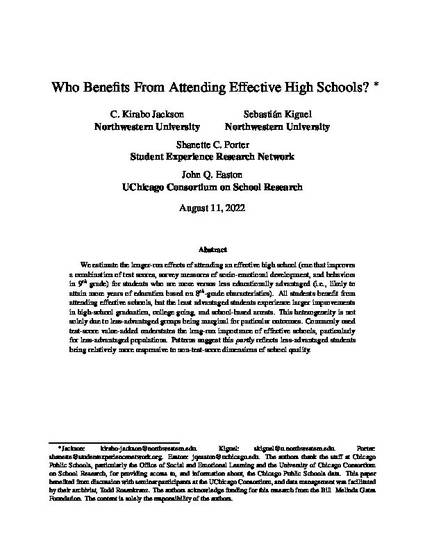
Article
Who Benefits From Attending Effective Schools?
Journal of Labor Economics
(2023)
Abstract
We estimate the longer-run effects of attending an effective high school (one that improves a combination of test scores, survey measures of socio-emotional development, and behaviors in 9th grade) for students who are more versus less educationally advantaged (i.e., likely to attain more years of education based on 8th-grade characteristics). All students benefit from attending effective schools, but the least advantaged students experience larger improvements in high-school graduation, college going, and school-based arrests. This heterogeneity is not solely due to less-advantaged groups being marginal for particular outcomes. Commonly used test-score value-added understates the long-run importance of effective schools, particularly for less-advantaged populations. Patterns suggest this partly reflects less-advantaged students being relatively more responsive to non-test-score dimensions of school quality.
Keywords
- school quality,
- heterogeneity,
- value-added,
- socioemotional skills,
- noncgntive skills
Publication Date
2023
Citation Information
C. Kirabo Jackson, Shanette C Porter, John Q Easton and Sebastian Kiguel. "Who Benefits From Attending Effective Schools?" Journal of Labor Economics (2023) Available at: http://works.bepress.com/c_kirabo_jackson/42/
